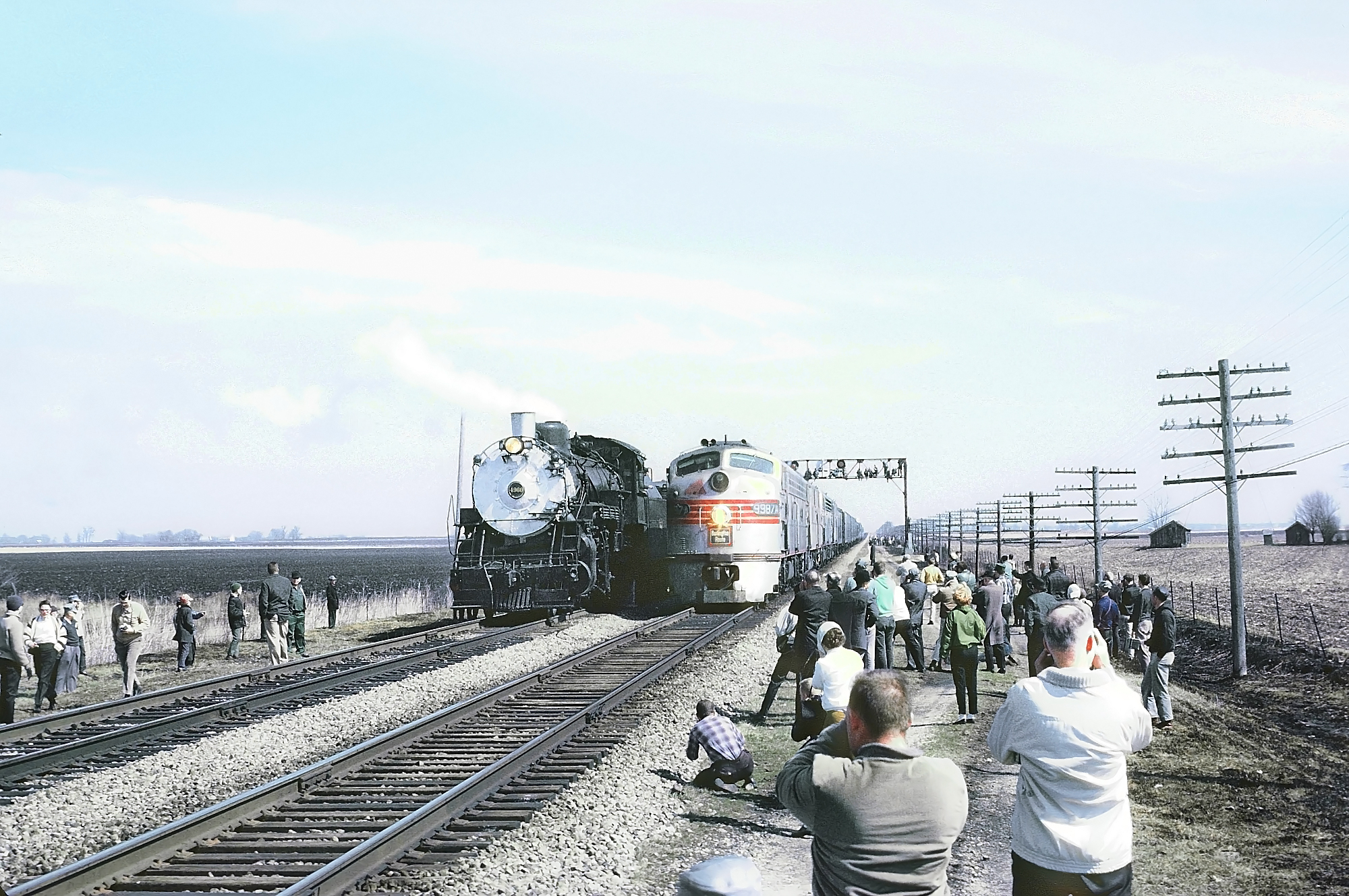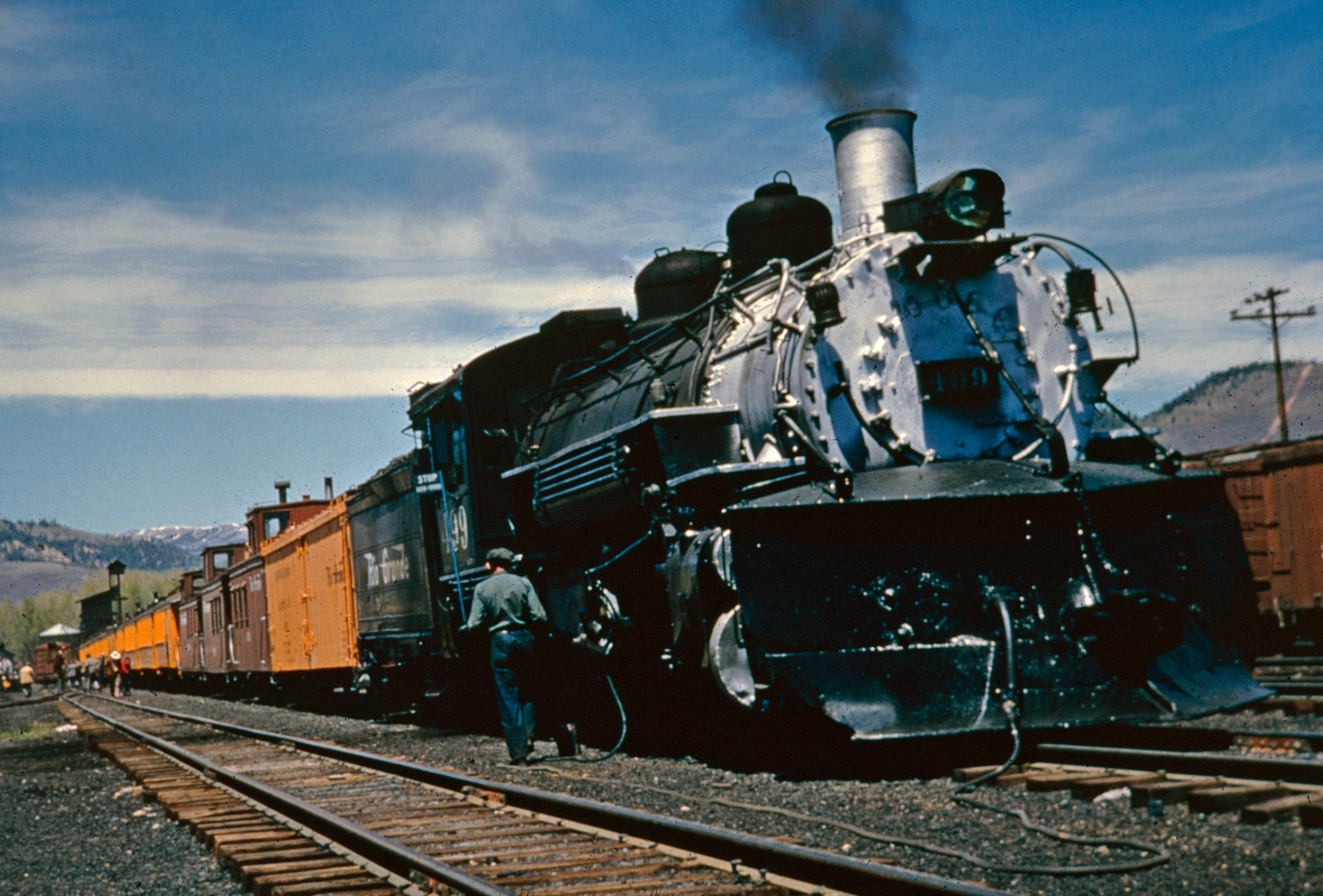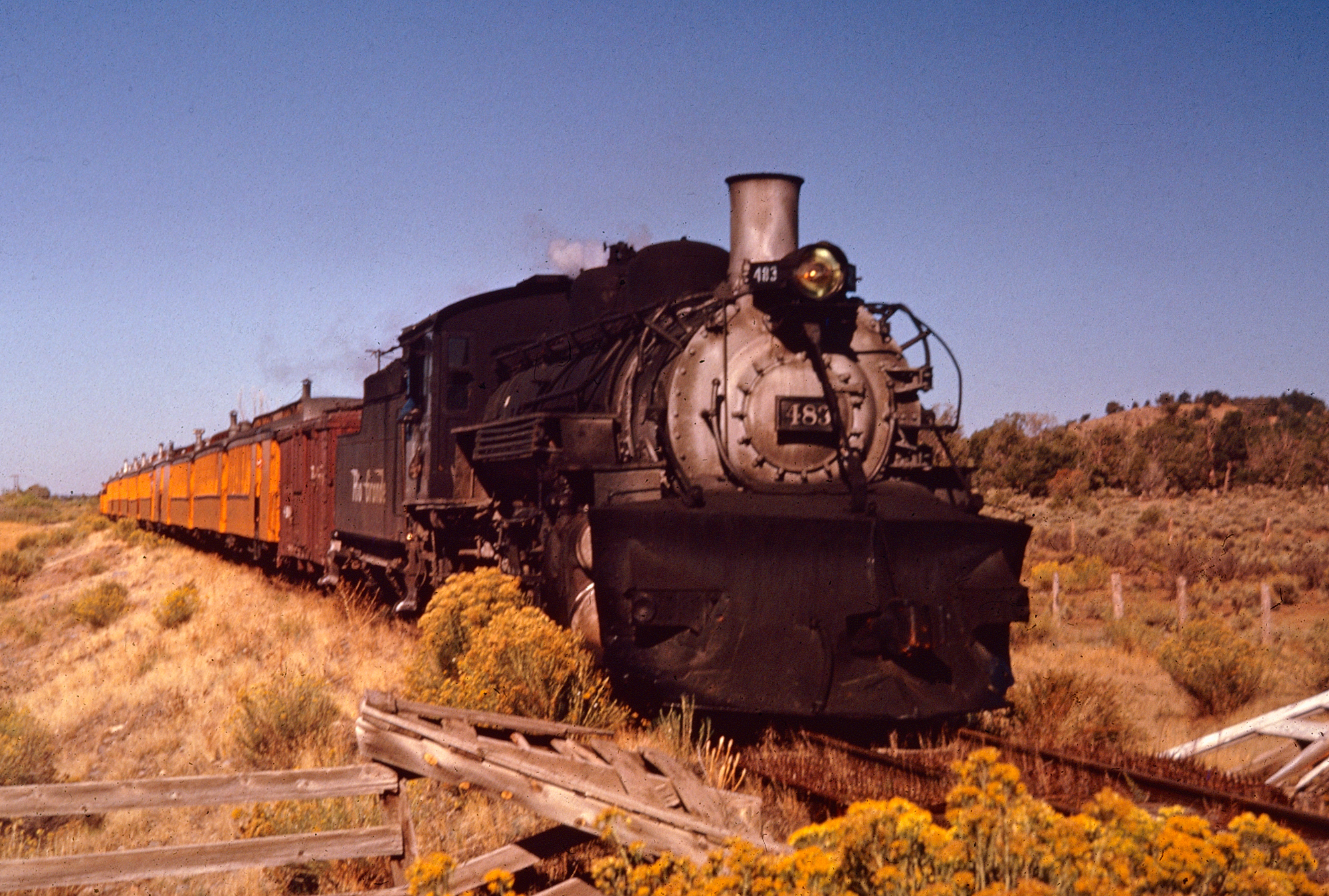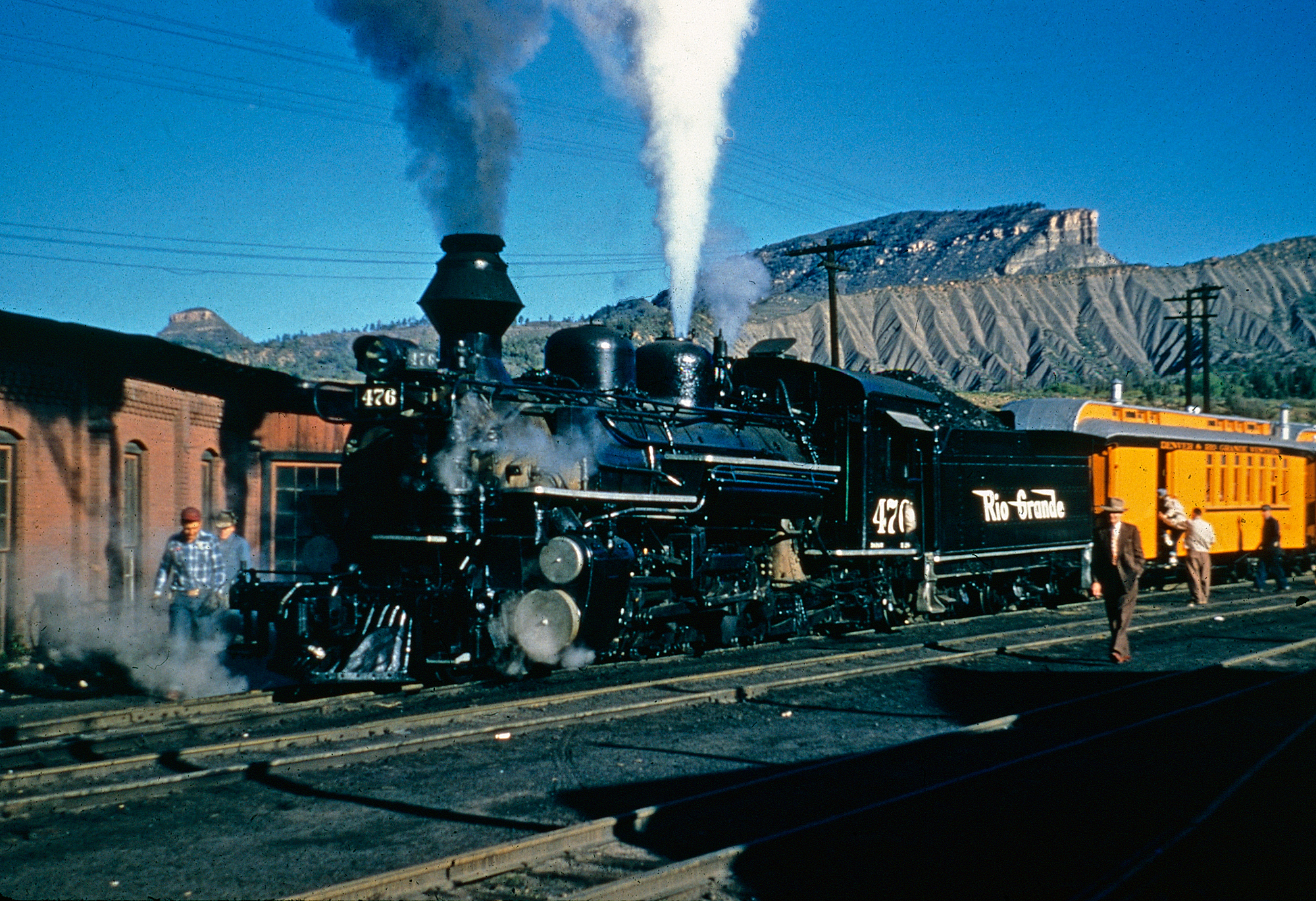Nebraska Scenic Train Rides (2025): A Complete Guide
Last revised: February 22, 2025
By: Adam Burns
Over time, Nebraska became a major gateway for trains following the Transcontinental Railroad's 1869 completion.
When the Union Pacific, building west from a young Omaha, and the Central Pacific, striking out east from Sacramento, met at Promontory Summit, Utah on that famous day in May, numerous Midwestern railroads sought a UP connection.
As new construction reached a fever pitch during the 1880's, thousands of miles were laid down throughout the Cornhusker State.
The modern names serving its borders, or reach the Omaha/Council Bluffs, Iowa gateway included the Chicago & North Western; Chicago, Burlington & Quincy; Missouri Pacific; Wabash; Chicago, Rock Island & Pacific (Rock Island); Milwaukee Road; Chicago Great Western; and even the Illinois Central.
There are currently no standard-gauge scenic train rides available in Nebraska after the Fremont & Elkhorn Valley Railroad/ Fremont Dinner Train closed in 2012.
However, a number of museums do exist, such as the Golden Spike Tower in North Platte, which overlooks the world's largest freight terminal, Union Pacific's massive Bailey Yard. More information about this can be found in the below guide.
 Burlington 2-8-2 #4960 leads a fan trip waiting in the siding as train 11-35, the "Nebraska-Kansas City Zephyr," passes by just east of Meriden, Illinois on March 20, 1966. Train enthusiasts are line up on both side of hte right-of-way to photograph and watch the scene. Roger Puta photo.
Burlington 2-8-2 #4960 leads a fan trip waiting in the siding as train 11-35, the "Nebraska-Kansas City Zephyr," passes by just east of Meriden, Illinois on March 20, 1966. Train enthusiasts are line up on both side of hte right-of-way to photograph and watch the scene. Roger Puta photo.State Rail History
The iron horse arrived in Nebraska only after the United States put forth a concentrated effort to link the continent by rail, thus opening the western frontier to new economic and settlement opportunities.
It all began when the Pacific Railroad Act was signed into law by President Abraham Lincoln on July 1, 1862, thus establishing the Union Pacific Railroad.
The company was formally organized in May, 1863 and held its groundbreaking in Omaha on December 1, 1863. The event was widely publicized and a great gala held in its honor.
Those attending included Nebraska Territory's governor, Alvin Saunders (who turned the first shovel of dirt), and many UP dignitaries. The day was also filled with fireworks, cannon salutes, bands, and other activities.
By 1864 the project was well underway. In spite of a scandal that greatly shook the railroad (the infamous Crédit Mobilier incident) it would eventually meet Central Pacific at Promontory Summit, Utah on May 10, 1869.
To read more about the Transcontinental Railroad please click here. On that day, Central Pacific 4-4-0 #60, "The Jupiter," touched the cow-catcher of Union Pacific 4-4-0 #119, thus signaling the railroad's completion.
In the coming years, numerous Midwestern systems tried to reach the Omaha/Council Bluffs gateway; those mentioned above (or their predecessors) were successful while many others failed.
As it turns out, the Chicago & North Western carried the greatest leverage since it spent many years as Union Pacific's signature link into Chicago (after the C&NW's physical plant declined after World War II, UP switched its connection to the Milwaukee Road in 1955).
However, not all were concerned with Omaha/Council Bluffs as a UP connector.
Some, particularly the Chicago, Burlington & Quincy, maintained not only through routes across Nebraska (serving Omaha in the process) but also numerous secondary corridors tapping the state's agriculture industry.
Not even the mighty UP blanketed Nebraska quite like the CB&Q.
There were others in this regard, like the C&NW itself, which contained considerable service throughout the state (it also attempted to open its own transcontinental corridor but only managed to reach Lander, Wyoming).
According to John Stover's book "The Routledge Historical Atlas Of The American Railroads," mileage peaked at over 6,100 during the 1920's.
Today, the Association of American Railroads notes Nebraska is still served by nine different railroads, operating 3,228 miles of track.
Overview
Durham Museum
This museum, located at 801 South 10th Street in Omaha, is housed within the town's restored Union Station: completed in 1931 it was utilized by:
- Union Pacific
- Wabash
- Chicago Great Western
- Missouri Pacific
- Chicago, Rock Island & Pacific (Rock Island)
- Milwaukee Road
- Chicago & North Western
The building was the third to grace the location; it was designed by Los Angeles architect Gilbert Stanley Underwood, featuring classic touches from the Art Deco period.
It cost $3.5 million and during peak operations witnessed 10,000 passengers daily. In 1971 it was placed on the National Register of Historic Places and in 1973, following cessation of rail service, the Western Heritage Museum opened.
Today, it is known as the Durham Museum related to the history of Omaha and the West.
In 2016 the structure was granted additional recognition by earning the rare distinction as a National Historic Landmark. There are also several pieces of rolling stock also on display.
Golden Spike Tower
This tower is a fascinating attraction that overlooks Union Pacific's massive Bailey Yard, the world's largest such facility situated in North Platte.
This facility covers 2,850 acres (4.45 square miles), over 8 miles in length, and 2 miles wide. The yard is so big that its 200 separate tracks total 315 miles in length!
In addition, there are 985 switches, 766 turnouts, 17 receiving, and 16 departing tracks. To keep this operation in fluid motion the railroad staffs an army of some 2,600 workers.
Without this major terminal the town would almost certainly cease to exist, or, at the very least, be much smaller. Once atop the tower, which stands eight stories, you are provided a 360-degree, panoramic view of the surrounding yard and area.
It is open nearly year-round. While in North Platte also be sure to visit a few preserved steam locomotives on display; Union Pacific 4-6-6-4 #3977 (built by American Locomotive in 1943) in Cody Park and Union Pacific 2-8-0 #480 (listed as Class C-57 it was manufactured by the Baldwin Locomotive Works in 1903) at North Platte Memorial Park.
Historic Chicago & North Western Depot Museum
This small museum is part of the Wakefield Heritage Organization and housed inside the town's restored Chicago, St. Paul, Minneapolis & Omaha (better known as "The Omaha Road" this rather large railroad was acquired by the Chicago & North Western in November, 1882) depot, located at 101 East 1st and Main Streets.
It is a brick/stucco structure that opened in 1925 (the second such facility to serve the town). Rail service was suspended here after March 15, 1977.
Today, the museum is open to visitors on select days of they year featuring historic displays and artifacts. To learn more please visit the organization's website by clicking here.
Omaha Zoo Railroad
Many zoos around the country feature small railroads that ferry visitors around the grounds and Omaha's Henry Doorly Zoo is no different.
The train uses open-air cars and is pulled by a pair of steam locomotives. The operation utilizes a 30-inch gauge (2 feet, 6 inches) and was first placed into service on July 22, 1968, following the zoo's 1963 reincorporation.
Interestingly, for many years the railroad was sponsored by the Union Pacific, which actually oversaw initial construction.
Today, there are 1.8 miles in service, allowing visitors to enjoy a 15-20 minute ride. Three locomotives pull the trains:
- 4-4-0 #119 modeled after Union Pacific #119 which was on-hand for the Transcontinental Railroad's completion (built by Crown Metal Products in 1968)
- 0-6-2T #392-104 (named "Riva" it was built by the Krauss Works of Linz, Austria for the Mori–Arco–Riva del Garda Railway of Northern Italy)
- 40-ton diesel switcher named "Virgie" (built by the Plymouth Locomotive Works)
The railroad operates from March through November each year.
Stuhr Museum Of The Prairie Pioneer
This museum is based in Grand Island and its mission is to preserve the history of pioneers who settled central Nebraska during the late 19th century.
During railroading's height, it was served by not only Union Pacific but also Chicago, Burlington & Quincy.
Today, Grand Island remains a major railroad town where UP's main line still passes through the heart of the city while BNSF Railway's line (successor to the CB&Q) also remains in active use.
The Stuhr Museum features many displays and artifacts related to such and also offers a number of special events throughout the year.
Finally, there is a small collection of historic rolling stock on the grounds along with Union Pacific 2-8-0 #437, a Class C-57 "Consolidation Type" built by the Baldwin Locomotive Works in 1901. To learn more about the Stuhr Museum please visit their website.
Trails & Rails Museum
This museum is operated by the Buffalo County Historical Society and based in Kearney. Their primary mission is to preserve the history of Buffalo County and the state of Nebraska while also telling the railroads' involvement in the region's development.
The town has long been served by Union Pacific although the Chicago, Burlington & Quincy also once maintained a branch off its main line from Kenesaw (long since abandoned).
While there be sure and check out another preserved Union Pacific 2-8-0 "Consolidation," #481 (built by Baldwin Locomotive Works in 1903).
There is also a collection of rolling stock to peruse and don't forget to visit Union Pacific's preserved wooden depot from Shelton.
The structure has been handsomely restored with various artifacts displayed around the building. The museum is open on select days throughout the year.
Contents
Recent Articles
-
Rio Grande 2-8-2 Locomotives (K-37): Specs, Roster, Photos
Apr 15, 25 12:57 PM
Rio Grande's Class K-37 Mikes were itsdge steamers to enter service in the late 1920s. Today, all but two survive. -
Rio Grande 2-8-2 Locomotives (K-36): Specs, Roster, Photos
Apr 15, 25 11:09 AM
The Rio Grande's K-36 2-8-2s were its last new Mikados purchased for narrow-gauge use. Today, all but one survives. -
Rio Grande 2-8-2 Locomotives (Class K-28): Specs, Roster, Photos
Apr 14, 25 10:24 PM
Rio Grande's Class K-28 Mikados were its newest narrow-gauge steam locomotives since the Mudhens of the early 1900s. Today, three survive.


